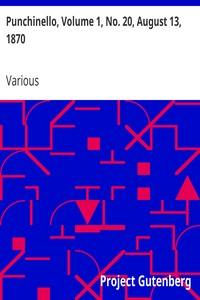Read this ebook for free! No credit card needed, absolutely nothing to pay.
Words: 104883 in 44 pages
This is an ebook sharing website. You can read the uploaded ebooks for free here. No credit cards needed, nothing to pay. If you want to own a digital copy of the ebook, or want to read offline with your favorite ebook-reader, then you can choose to buy and download the ebook.


: An Enemy to the King From the Recently Discovered Memoirs of the Sieur de la Tournoire by Stephens Robert Neilson - France History Henry IV 1589-1610 Fiction
AN ENEMY TO THE KING
TWO ENCOUNTERS BY NIGHT
Hitherto I have written with the sword, after the fashion of greater men, and requiring no secretary. I now take up the quill to set forth, correctly, certain incidents which, having been noised about, stand in danger of being inaccurately reported by some imitator of Brantome and De l'Estoile. If all the world is to know of this matter, let it know thereof rightly.
Michel had my portmanteau fastened on my horse, which had been brought out into the courtyard, and then he stood by me while I took my last breakfast in La Tournoire; and, in my haste to be off, I would have eaten little had he not pressed much upon me, reminding me how many leagues I would have to ride before meeting a good inn on the Paris road. He was sad, poor old Michel, at my going, and yet he partook of some of my own eagerness. At last I had forced down my unwilling throat food enough to satisfy even old Michel's solicitude. He girded on me the finest of the swords that my father had left, placed over my violet velvet doublet the new cloak I had bought for the occasion, handed me my new hat with its showy plumes, and stood aside for me to pass out. In the pocket of my red breeches was a purse holding enough golden crowns to ease my path for some time to come. I cast one last look around the old hall and, trying to check the rapidity of my breath, and the rising of the lump in my throat, strode out to the court-yard, breathed the fresh air with a new ecstasy, mounted the steaming horse, gave Michel my hand for a moment, and, purposely avoiding meeting his eyes, spoke a last kind word to the old man. After acknowledging the farewells of the other servants, who stood in line trying to look joyous, I started my horse with a little jerk of the rein, and was borne swiftly through the porte, over the bridge, and out into the world. Behind me was the home of my fathers and my childhood; before me was Paris. It was a fine, bracing winter morning, and I was twenty-one. A good horse was under me, a sword was at my side, there was money in my pocket. Will I ever feel again as I did that morning?
Some have stupidly wondered why, being a Huguenot born and bred, I did not, when free to leave La Tournoire, go at once to offer my sword to Henri of Navarre or to some other leader of our party. This is easily answered. If I was a Huguenot, I was also a man of twenty-one; and the latter much more than the former. Paris was the centre of the world. There was the court, there were the adventures to be had, there must one go to see the whole of life; there would I meet men and make conquests of women. There awaited me the pleasures of which I had known only by report, there the advancement, the triumphs in personal quarrels; and, above all else, the great love affair of my dreams. Who that is a man and twenty-one has not such dreams? And who that is a man and seventy would have been without them? Youth and folly go together, each sweetening the other. The greatest fool, I think, is he who would have gone through life entirely without folly. What then mattered religion to me? Or what mattered the rivalry of parties, except as they might serve my own personal ambitions and desires? Youth was ebullient in me. The longing to penetrate the unknown made inaction intolerable to me. I must rush into the whirlpool; I must be in the very midst of things; I longed for gaiety, for mystery, for contest; I must sing, drink, fight, make love. It is true that there would have been some outlet for my energies in camp life, but no gratification for my finer tastes, no luxury, no such pleasures as Paris afforded,--little diversity, no elating sense of being at the core of events, no opportunities for love-making. In Paris were the pretty women. The last circumstance alone would have decided me.
I looked back once at La Tournoire, when I reached the top of the hill that would, in another minute, shut it from my view. I saw old Michel standing at the porte. I waved my hand to him, and turned to proceed on my way. Soon the lump in my throat melted away, the moisture left my eyes, and only the future concerned me. Every object that came into sight, every tree along the roadside, now interested me. I passed several travellers, some of whom seemed to envy me my indifference to the cold weather, my look of joyous content.
About noon I overtook, just where the road left a wood and turned to cross a bridge, a small cavalcade consisting of an erect, handsome gentleman of middle age, and several armed lackeys. The gentleman wore a black velvet doublet, and his attire, from his snowy ruff to his black boots, was in the best condition. He had a frank, manly countenance that invited address. At the turn of the road he saw me, and, taking me in at a glance, he fell behind his lackeys that I might come up to him. He greeted me courteously, and after he had spoken of the weather and the promise of the sky, he mentioned, incidentally, that he was going to Paris. I told him my own destination, and we came to talking of the court. I perceived, from his remarks, that he was well acquainted there. There was some talk of the quarrels between the King's favorites and those of his brother, the Duke of Anjou; of the latter's sulkiness over his treatment at the hands of the King; of the probabilities for and against Anjou's leaving Paris and putting himself at the head of the malcontent and Huguenot parties; of the friendship between Anjou and his sister Marguerite, who remained at the Court of France while her husband, Henri of Navarre, held his mimic Huguenot court in B?arn. Presently, the name of the Duke of Guise came up.
Now we Huguenots held, and still hold, Henri de Guise to have been a chief instigator of the event of St. Bartholomew's Night, in 1572. Always I had in my mind the picture of Coligny, under whom my father had fought, lying dead in his own courtyard, in the Rue de Bethizy, his murder done under the direction of that same Henri, his body thrown from his window into the court at Henri's orders, and there spurned by Henri's foot. I had heard, too, of this illustrious duke's open continuance of his amour with Marguerite, queen of our leader, Henri of Navarre. When I spoke of him to the gentleman at whose side I rode, I put no restraint on my tongue.
"The Duke of Guise!" I said. "All that I ever wish to say of him can be very quickly spoken. If, as you Catholics believe, God has an earthly representative in the Pope, then I think the devil has one in Henri de Guise."
The gentleman was quiet for a moment, and looked very sober. Then he said gravely:
"All men have their faults, monsieur. The difference between men is that some have no virtues to compensate for their vices."
"If Henri de Guise has any virtues," I replied, "he wears a mask over them; and he conceals them more effectually than he hides his predilection for assassination, his amours, and his design to rule France through the Holy League of which he is the real head."
Free books android app tbrJar TBR JAR Read Free books online gutenberg
More posts by @FreeBooks

: The Story of the Invention of Steel Pens With a Description of the Manufacturing Process by Which They Are Produced by Bore Henry - Pens


: Punchinello Volume 1 No. 20 August 13 1870 by Various - American wit and humor Periodicals Punchinello






